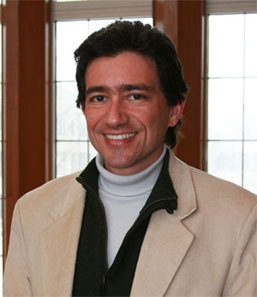«Brazil: Far-Right Foreign Policy Ahead?» – Gilberto M. A. Rodrigues
Les compartimos la nota escrita por Gilberto Rodrigues publicada el día de hoy por el «Center for Latin American & Latino Studies» de la Universidad Americana de Washington sobre el futuro de la política exterior de Brasil.
Brazilian President-elect Jair Bolsonaro appears to be moving ahead with promises to steer the country’s foreign policy in the direction of his own far-right ideology. He has accused the Workers’ Party (PT) of former President Lula da Silva (2003-10) and Dilma Rousseff (2011-16) of pursuing a foreign policy with a partisan left-wing ideology, and now he wants to “liberate” Itamaraty, the Ministry of Foreign Affairs, from what he considers an inappropriate ideological bias.
Bolsonaro says that President Trump is his inspiration, his “model” of leadership, and he has made policy coordination with Washington a priority. After a congratulations call to Bolsonaro, Trump tweeted that he and the president-elect “agreed that Brazil and the United States will work closely together on Trade, Military and everything else! Excellent call, wished him congrats!” Bolsonaro met last week with Trump’s National Security Adviser, John Bolton, to discuss joint efforts to achieve regime change in Cuba and Venezuela, among other topics.
Even before that, Bolsonaro had ramped up his already strong rhetoric against Venezuelan President Nicolás Maduro and reversed a long-standing policy of cooperation with Cuba, taking aim first at the 8,300 Cuban doctors in Brazil’s Mais Medicos. “We can’t allow Cuban slaves in Brazil,” he said, “And we can’t keep feeding the Cuban dictatorship.” Havana began withdrawing the doctors before Bolsonaro could expel them.
Bolsonaro has barely mentioned UNASUR and is downplaying relations with Argentina, Brazil’s main strategic partner in the region, while emphasizing relations with what he calls “developed nations.” In addition to the United States, he is focused on Italy, Hungary – due to leaders’ far-right political affinities – and Israel. The evangelical political forces who backed his election are pressing him to move the Brazilian embassy from Tel Aviv to Jerusalem, respecting “a sovereign decision of Israel.” The Trump administration will warmly welcome the move, but Bolsonaro will face a potentially significant loss of trade among Middle Eastern and Asian partners. The president-elect has yet to show his hand on China – Brazil’s main trading partner – and the other BRICS countries. The Trump administration’s increasingly tough criticism of China’s activities in Latin America may temper the new government’s enthusiasm for closer ties with Beijing.
Bolsonaro has taken positions that set him at odds with the rest of the hemisphere. He has denied the excesses of Brazil’s past dictatorship, advocated the use of torture against criminals whom he classifies as “terrorists,” used aggressive rhetoric against minorities (LGBTI, women, indigenous peoples, Afro-Brazilian Quilombolas, and migrants), and promised to reduce certain social rights. Brazil’s diplomatic capital as a leader on environment and climate change is also at risk due to his domestic priority to promote agricultural business and the need to preserve “total” sovereignty over the Amazon Basin at the expense of protecting the rainforest. He has cancelled Brazil’s commitment to host crucial UN climate change talks (COP25) in 2019, a deal negotiated by the government of President Temer just months ago.
Bolsonaro’s choice of his new foreign minister may be emblematic of his approach to international relations. He met his commitment to choose a career diplomat, but his choice was Ernesto Araújo, an unknown who was recently promoted without ambassadorial experience who is a self-declared anti-globalist, anti-communist, and Trump’s enthusiastic “intellectual disciple.” This appointment violates the tradition, observed even during the military governments, of selecting senior, skillful, and experienced ambassadors not directly linked to any ideological trend. Further questions are raised by the military’s influence in the cabinet. Two retired generals, Vice President Hamilton Mourão and the future head of Institutional Security Cabinet, Augusto Heleno, are expected to be the president’s right-hand men. They and an empowered Ministry of Defense certainly will exercise huge influence in promoting a military vision of foreign policy in addressing issues such as borders policy and the Venezuela crisis, and could become a “second track” on Brazil’s foreign policy.
December 4, 2018
* Gilberto M.A. Rodrigues is Professor of International Relations at the Federal University of ABC (UFABC) in Brazil, and was a CLALS Research Fellow in 2017.

